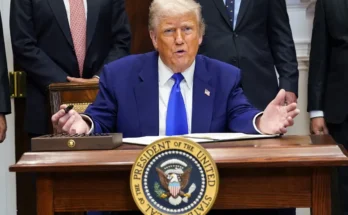Former President Barack Obama delivered a somber and urgent message following the tragic assassination of conservative activist Charlie Kirk and the fatal attack on Minnesota House Speaker Melissa Hortman and her husband. Speaking at a fireside chat in Pennsylvania, Obama called the events “horrific” and warned that America is at an “inflection point.” He emphasized that political violence is antithetical to democracy and condemned leaders who exploit tragedy to deepen division. His words were heartfelt, but they also carried a warning: the nation’s moral compass is faltering, and unity must be reclaimed before it’s too late.
Obama’s statement, shared widely across social media, expressed deep sympathy for Kirk’s family, especially his wife Erika and their two children. Yet, the reaction online was swift and brutal. Critics accused Obama of hypocrisy, blaming his past rhetoric for fueling the very divisions that led to Kirk’s death. Some users demanded he “repent,” while others claimed his words were insincere. The backlash revealed the depth of America’s political fracture, where even condolences are weaponized. Obama’s attempt to mourn and unify was met with rage, exposing the raw nerves of a country in crisis.
Despite the vitriol, Obama remained composed, urging Americans to reject violence and embrace civil discourse. He praised Utah Governor Spencer Cox for modeling respectful disagreement and warned against leaders who prematurely assign blame. Obama’s message was clear: democracy demands debate without bloodshed. Yet, his voice—once a symbol of hope—now echoes in a landscape where empathy is suspect and every word is dissected for partisan intent. The tragedy has become a mirror, reflecting not just grief, but the perilous state of American dialogue.
Michelle Obama also joined her husband in expressing sorrow, breaking their silence with a joint statement that underscored the emotional toll of recent events. Their words, though dignified, were drowned in a sea of outrage. The Obamas’ grief was real, but the public response was a reminder that no figure, however revered, is immune to the fury of a divided nation. As the dust settles, one truth remains: America must choose whether to spiral deeper into hostility or rise from tragedy with renewed purpose. The choice, Obama implied, is urgent—and ours to make.


